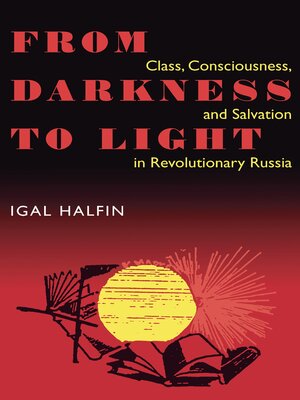From Darkness to Light
ebook ∣ Class, Consciousness, & Salvation In Revolutionary · Russian and East European Studies
By Igal Halfin

Sign up to save your library
With an OverDrive account, you can save your favorite libraries for at-a-glance information about availability. Find out more about OverDrive accounts.
Find this title in Libby, the library reading app by OverDrive.



Search for a digital library with this title
Title found at these libraries:
| Library Name | Distance |
|---|---|
| Loading... |
In conjunction with Studies of the Harriman InstituteIn this interdisciplinary and controversial work, Igal Halfin looks at Marxist theory in a new light, attempting to break down the divisions between history, philosophy, and literary theory. His approach is methodological, combining intellectual and social history to argue that if we are to take the Bolshevik revolutionary experiment seriously, we have to examine carefully the ideological presupposition of both communist ideological texts and the archival documents that social historians believe truly reflect lived experience in order to see what effects these texts had on reality. Igal Halfin aims to turn Marxism, class, and consciousness from subjects of analysis to its objects. <i>From Darkness to Light</i> begins by examining the Marxist philosophy of history as understood by the Russian revolutionary movement. Halfin argues that the Soviet government took its cues to how it could bring about a classless society from a peculiar blending of eschatological thinking and modern techniques of power. Halfin then offers a case study of the Bolshevik attempt in the 1920s to create the "Communist New Man" by amalgamating the characteristics of the intellectual and the worker in order to eradicate the petit-bourgeois traits attributed by the regime to the pre-revolutionary individualistic and decadent student. Halfin's conclusions raise important questions about Marxist theory as it relates to class, historical progress, and communism itself. His approach suggests that "proletarianization" should be understood not as a change in the social composition of the student body, but as the introduction of the language of class into the universities. Through the examination of the process of the literary construction of class identity, Halfin concludes that the student class affiliation in the Soviet Union of the 1920s was not simply a matter of social origins, but of students' ability, using a set of ritualized procedures, to defend their claims to a working-class identity. Halfin's conclusions raise important questions about Marxist theory as it relates to class, historical progress, and communism itself.







